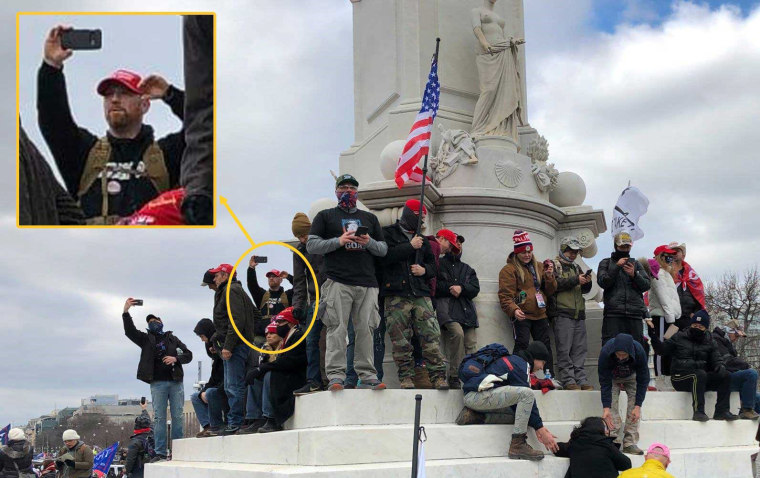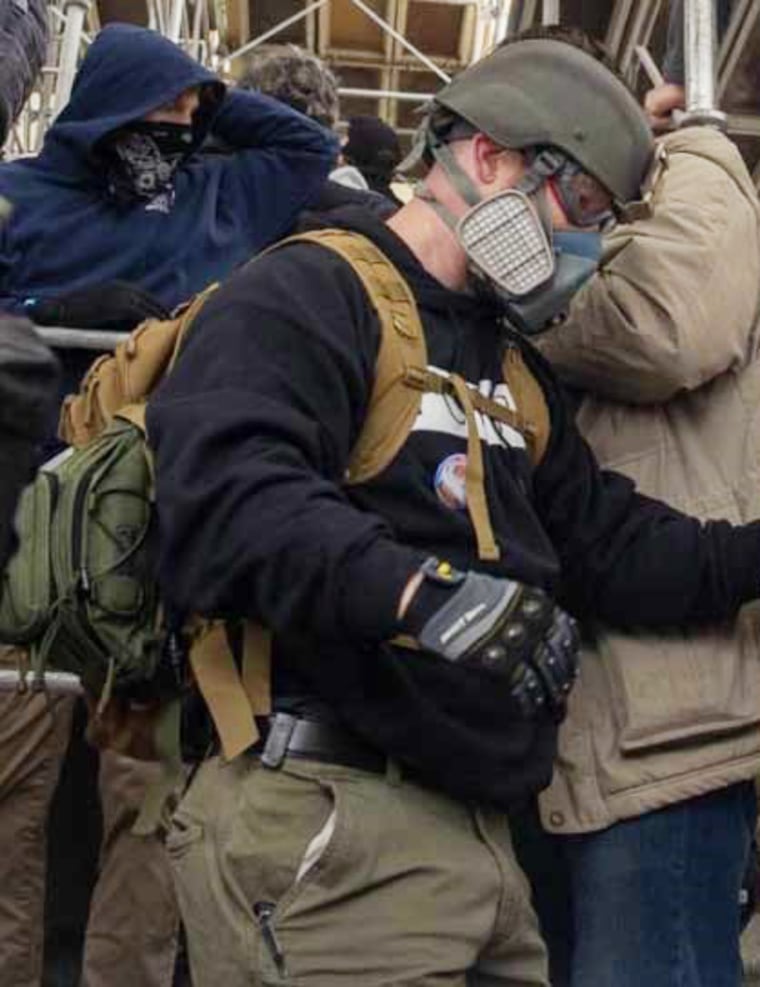WASHINGTON – A supporter of Donald Trump who was among the initial rioters to penetrate the U.S. Capitol on January 6, 2021, now faces charges related to a scheme to assassinate FBI agents probing the Capitol incidents.
Edward Kelly, who was sentenced last week for assaulting a law enforcement officer amid the Capitol riot, received additional sentences on three new charges on Wednesday. These included soliciting a violent crime and threatening federal employees.
The trial for the murder conspiracy commenced on Monday in Knoxville, Tennessee. According to Knoxville’s NBC News affiliate WBIR, the jury reached a unanimous guilty verdict on all three charges within just one hour of deliberation. Sentencing for Kelly regarding the attempted murder charges is scheduled for May 7, following his prior sentencing in the Capitol case on April 7.

Testimony during Kelly’s trial included statements from co-defendant Austin Carter, who entered a guilty plea in November 2023. Carter revealed that he and Kelly conspired to “murder a Federal Bureau of Investigation agent” in December 2022, several months after Kelly’s arrest in January. Prosecutors claimed Kelly compiled a list of about 37 law enforcement officials involved in the January 6 incident.
Carter informed jurors that Kelly was convinced the nation was on the brink of a civil war and felt compelled to initiate an attack, with initial plans targeting the FBI’s Knoxville field office. Ultimately, he redirected his focus to specific FBI agents involved in the January 6 investigation.
Christopher Roddy, a colleague of Kelly who provided information to the FBI, testified during the trial, along with three FBI agents who expressed feeling threatened by the list Kelly had created.

Known as an anti-abortion activist, Kelly was caught on film during the Capitol riot wearing a sweatshirt featuring the TCAPP logo. Prosecutors argued that during the Capitol siege, he possessed a weapon, claiming he had a gun holster concealed within his pants. Although there were visible impressions on his clothing, they could not definitively prove their case, as it was not central to their argument.
Prosecutors further revealed that during the January 6 incident, Kelly’s wife texted him inquiring about his well-being and expressing skepticism towards “fake news.” They also mentioned that Kelly urged his wife to download the encrypted messaging app Signal.


